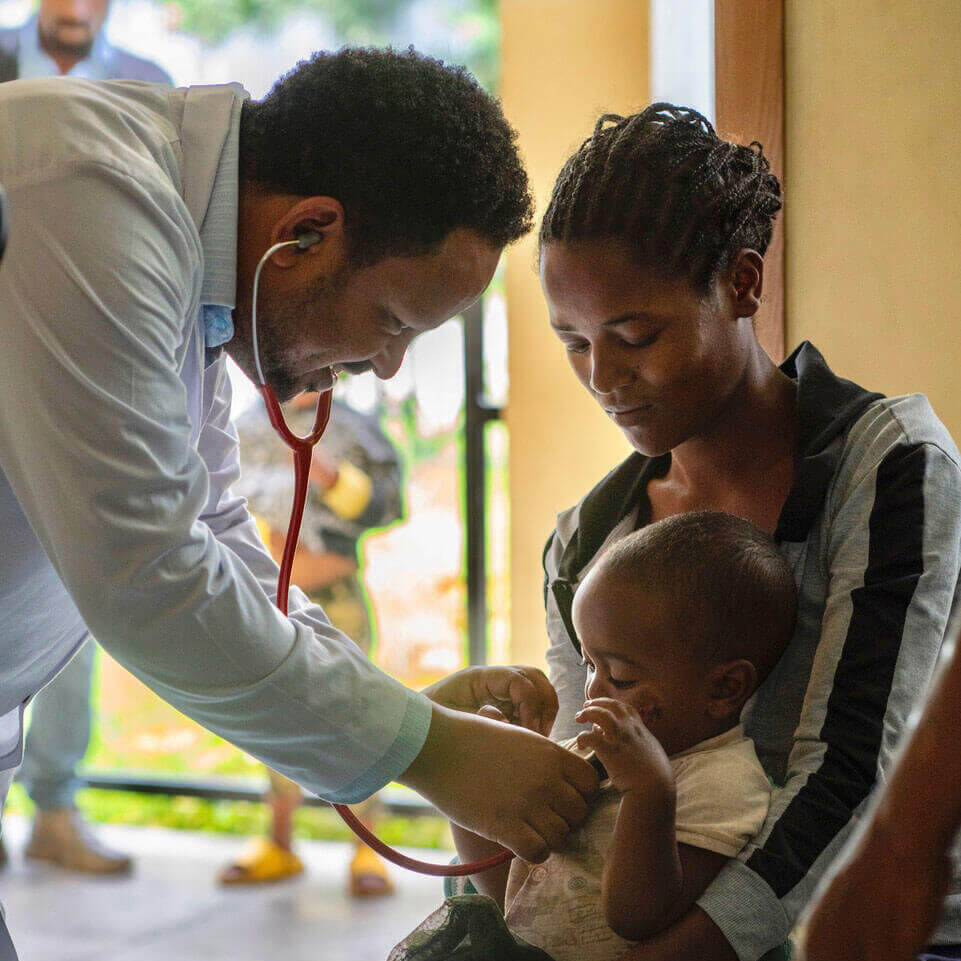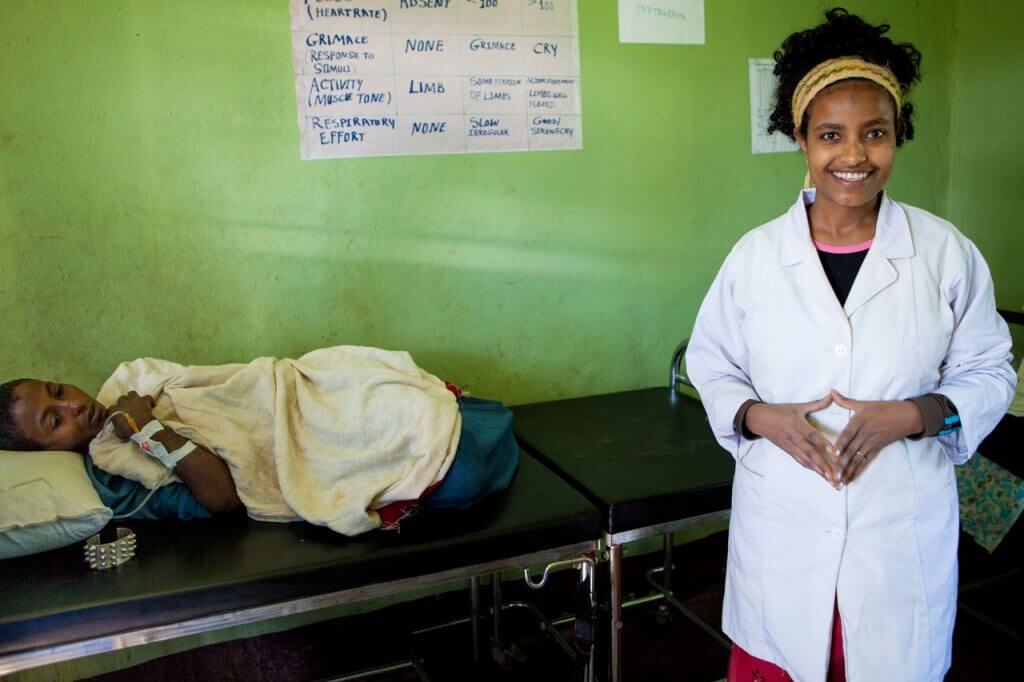All mothers, no matter where they live or their economic circumstances, deserve to be free from childbirth injury.
Giving birth in well-equipped hospitals and clinics, with specially trained doctors, nurses or midwives, drops the risk of developing an injury like fistula to almost zero.
ETHIOPIA
Bushulo Maternal, Neonate & Child Health Specialty Center
Ethiopia, with its mountainous, beautiful landscape, is the second largest country on the African continent by population (~120M), where 80 percent of people live on very isolated small agri holdings, and childbirth injuries are common. MHF is proud to support the Bushulo Maternal, Neonate and Child Health Specialty Center (MNCH-SC), located at the Bushulo Health Center in Sidama, Hawassa, Ethiopia.


The Center provides women, newborns and children with exceptional, safe prenatal, delivery, postnatal and pediatric care. Its operating rooms for delivery, neonatology, and tools like ultrasound and pregnancy education are superb.
Extensive planning, thought, human resource development and purchasing took place with CEO Sister Tri Minh Thi, and medical director, Dr. Bereket at the helm to shepherd in this new Specialty Center, a first for the entire southern region of Ethiopia.

About the center:
- Key relationships with the community and government organizations have strengthened these efforts.
- The new facility opened in a rolling establishment of services in 2022 and 2023.
- It is a training center for doctors across many disciplines.
- A supportive, holistic model of care works to avoid birth-related traumas and welcome healthy babies into the world.
- It will serve over 3,000 patients per year and have an inpatient capacity of 69 beds.
- Research into prevalence, epidemiology, treatment options and outcomes for pelvic organ prolapse is being sponsored at the Hawassa University School of Medicine and Health Sciences in Ethiopia.
Midwifery Care in Ethiopia
Receiving care from a capable midwife during pregnancy can mean the difference between life and death. Well-trained midwives can detect and prevent a host of medical complications that may arise during pregnancy and delivery, including fistula, and help their women deliver babies safely.
Forty-five Maternal Healthcare Centers in most regions of Ethiopia are staffed with trained midwives. Maternal Health Fund has funded the new build of a maternal healthcare center and significantly upgraded two more in Illubabor. In the Tigray region of Northern Ethiopia we have funded access and installation of safe water security in ten rural maternal healthcare centers.
Many midwives have graduated from the Hamlin College of Midwives since 2010 and helped lessen the extreme shortage of qualified midwives in Ethiopia. These midwives also help build confidence among rural residents—especially women—in the country’s formal healthcare system. However, as of 2022, there were 18,000 trained midwives for 111 million people.
“Midwives play a key role in improving the health of mothers, infants, children & adolescents, enhancing better access to quality healthcare.”
Dr. Lisa Tedese, Minister of Health.
Meet Addisalem, a dedicated midwife
Addisalem, is a graduate of the Hamlin College of Midwives, one of 46 midwifery training institutions in the country, and one of its best-equipped to teach tomorrow’s healthcare workers. Distances are enormous in rural Ethiopia. Addisalem works out of the Wotetabay Health Center outside of Bahir Dar, where most residents trek barefoot across rolling hills. Motorized transport is expensive and hard to come by, so Addisalem usually walks to the rural health posts in her district, sometimes hours away.

When she arrives, dozens of people are waiting; some have been there for days. As a midwife, she takes care of:
- Infant vaccinations, therapeutic food, prenatal care and treatment for other ailments.
- Taking routine blood samples to test for HIV, blood type and Rh factor, which could cause complications during pregnancy.
- Tests for venereal diseases and iron deficiency.
- Medical histories kept at each health post to ensure high-quality and continuity of care.